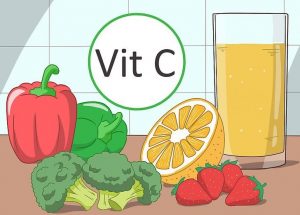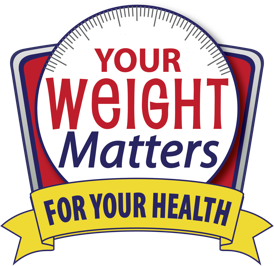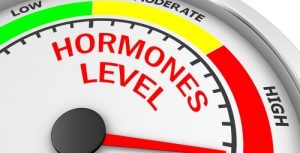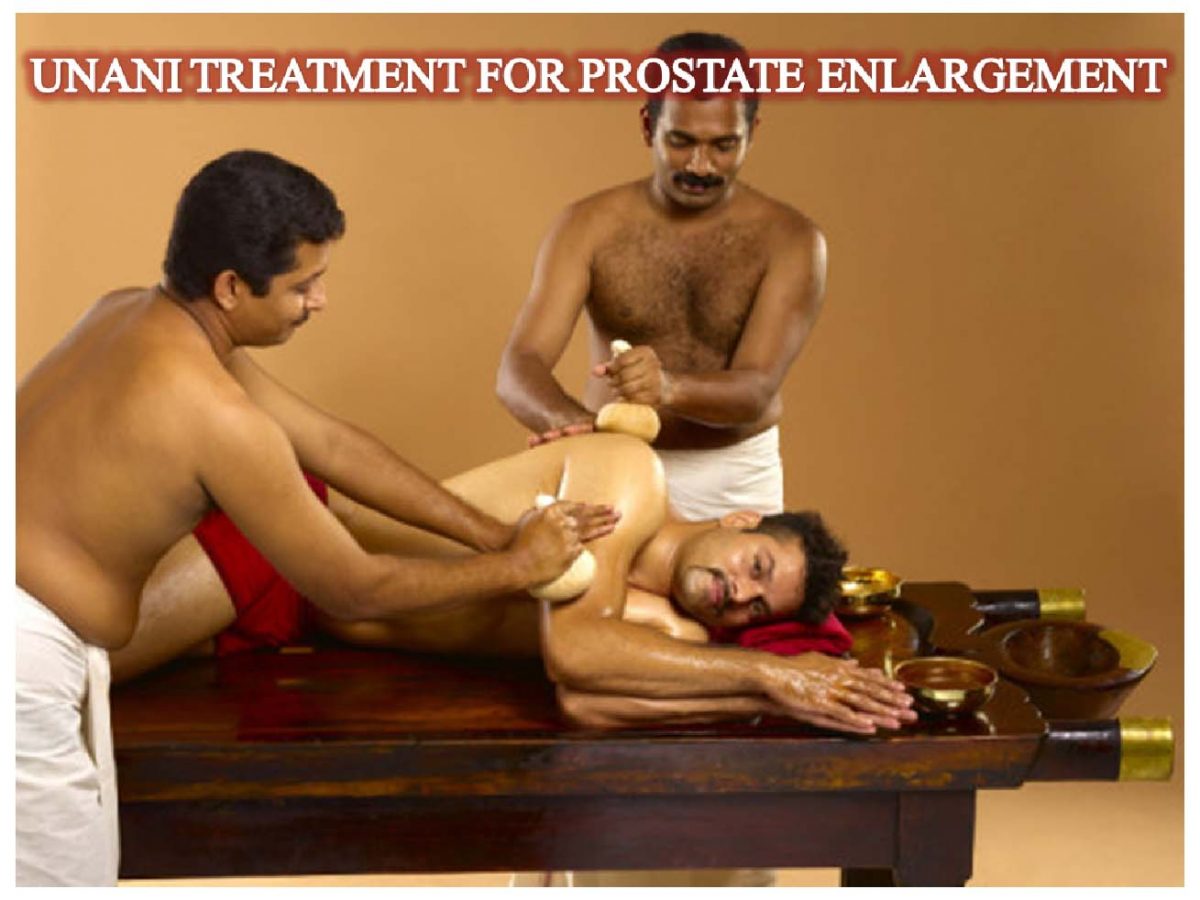How to Shrink Prostate With Food?
Enlargement of Prostate is a huge concern for most of the aging men. Prostate enlargement or BPH is a non-malignant enlargement linked to hormonal changes.
Though it is non-malignant, BPH can lead to a lot of discomforts due to its effect on the urinary system, because of which, its treatment becomes important. Symptoms originating from prostate enlargement are many urinary difficulties such as trouble starting urine, painful urination, dribbling, urge to urinate at night, feeling of incompleteness in bladder all the time, etc.
Many options for treatment are available for prostate enlargement but most of them have many side effects too. Thus, whenever you face problems because of an enlarged prostate, it is recommended to opt for natural treatments that do not cause any side effects and provide long-term relief as well.
Everyone is generally well versed with the link between dietary changes and health. Minor changes in one’s diet by inculcating healthy food can make a person less prone to diseases. Similar is the case with prostate enlargement. There are many food items (both fruits and vegetables), which can help to provide relief from enlarged prostate problems. These food items should definitely be included in the diet of every person in their old age to prevent this issue.
HOW TO SHRINK PROSTATE WITH FOOD?
The main reason for urinary abnormalities in prostate enlargement is inflammation. Healthy food targets the immune cells to decrease the inflammatory responses so that the feeling of heat and pain can be reduced and helps to shrink prostate with food
WHICH FOOD ITEMS COULD MAKE THE PROSTATE HEALTHY?
- Berries

Berries like strawberry, raspberry, blackberry can be helpful in reducing the production of prostate cells that lead to enlargement of the prostate. These berries contain Vitamin C and antioxidants that inhibit free radicals, which cause oxidative stress in the prostate. These free radicals contribute majorly in increasing the prostate size. Thus, eating berries regularly is highly recommended to reduce the risk of an enlarged prostate.
Berries can be consumed as it is or can also be consumed as fruit slush or smoothies or juices.
Nuts
Nuts such as almonds, pistachios, and walnuts can provide relief from the symptoms of enlarged prostate. Studies suggest that:
Almonds contain Vitamin E and manganese that help to fight with free radicals and strengthen immunity.
Pistachios are a good source of arginine (amino acid), which helps in making the blood vessels healthy and contributes in proper blood flow through the reproductive system.
Walnuts contain omega-3 fatty acids, which have the ability to fight against inflammation, which further prevents urinary abnormalities.
- Beans

Beans are highly enriched with proteins and the diet of a person suffering from prostate must be rich in proteins. It is also recommended to replace animal proteins with plant proteins so as to balance fatty acid profile of the body. Plant protein can be consumed in the form of beans such as black beans, chia, hemp seeds, etc.
Beans can be consumed as it is or as a part of vegetables, sprouts, salads, etc at any time of the day. They can be easily incorporated in the diet of a person with an enlarged prostate.
- Soy

Soy is obtained from the seeds of soybean. They are extremely beneficial in maintaining prostate health. It contains proteins, multiple amino acids, manganese, vitamins, calcium, zinc etc. Such high profile of vitamins and minerals is, in any case, beneficial for the overall health of a person and thus, soy should be consumed by people of any age with or without any disorder.
Isoflavones in the soy are the reason behind its health property in prostate enlargement. Isoflavones have anti-oxidant property. They gather in the prostate and start anti-oxidant mechanism there to remove the harmful free radicals. Isoflavones also help to reduce the prostate-specific antigen (PSA) levels in men which increase during prostate enlargement.
- Lycopene-containing food items
Lycopene containing food items such as tomatoes, pink grapefruits, guava, watermelons, and papaya help to decrease the size of the prostate. Many studies have established the ability of lycopene in reducing the risk of prostate problems.
Most of the lycopene-containing food items can easily be used in making vegetables or salads or can be consumed as fruit chat or smoothies along with the nuts.
Plums
Prosman is a natural dietary supplement, patented and clinically evaluated for management of BPH. It has been extracted from plum prunes and is effective and safe for prostate enlargement.
- Pumpkin seeds

Pumpkin seeds are known to be healthy for the male reproductive system including prostate health. It contains carotenoids and omega-3 fatty acids, which reduce the risk of an enlarged prostate.
Another major nutrient found in pumpkin seeds is zinc, which is associated with prostate health. A recent study suggests that zinc may protect the body against the development of prostate cancer. Pumpkin seeds can be consumed as it is or by boiling them in salted water and drinking that boiled water. Their regular consumption is highly recommended for prostate health.






 of the prostate. Fruits rich in Vitamin C can also be eaten such as berries, strawberries, raspberries, citrus fruits, spinach, broccoli, mangoes, etc.
of the prostate. Fruits rich in Vitamin C can also be eaten such as berries, strawberries, raspberries, citrus fruits, spinach, broccoli, mangoes, etc.

 size of the prostate. Exercise is otherwise good for maintaining a healthy body, especially during old age. These exercises are:
size of the prostate. Exercise is otherwise good for maintaining a healthy body, especially during old age. These exercises are:











 Prostate enlargement is largely attributable to
Prostate enlargement is largely attributable to 
 Ilaj bil tadbeer (regimental therapy):
Ilaj bil tadbeer (regimental therapy): Ilaj Bil Ghiza (dietotherapy):
Ilaj Bil Ghiza (dietotherapy):  Ilaj bil dawa (Pharmacotherapy):
Ilaj bil dawa (Pharmacotherapy):  Jarahat (Surgery):
Jarahat (Surgery):  Aim for a diet that is moderately high in proteins (44% of your calories should be protein) since a high protein diet may inhibit the production of (5-α-reductase) the enzyme that converts testosterone to DHT. Also look for a diet that is low in carbohydrates, low in animal fats, and high in essential fatty acids. Look for whole, unprocessed foods and eat plenty of sunflower or pumpkin seeds each day. Add raw tomatoes to your diet.
Aim for a diet that is moderately high in proteins (44% of your calories should be protein) since a high protein diet may inhibit the production of (5-α-reductase) the enzyme that converts testosterone to DHT. Also look for a diet that is low in carbohydrates, low in animal fats, and high in essential fatty acids. Look for whole, unprocessed foods and eat plenty of sunflower or pumpkin seeds each day. Add raw tomatoes to your diet. Push the fluids:
Push the fluids:

 Keep your cholesterol down:
Keep your cholesterol down:




















 The prostate can grow larger as men age, sometimes pressing on the bladder or urethra and causing symptoms similar to prostate cancer. This is called benign prostatic hyperplasia (BPH). It’s not cancer and can be treated if symptoms become bothersome. A third problem that can cause urinary symptoms is prostatitis. This inflammation or infection may also cause a fever and in many cases is treated with medication.
The prostate can grow larger as men age, sometimes pressing on the bladder or urethra and causing symptoms similar to prostate cancer. This is called benign prostatic hyperplasia (BPH). It’s not cancer and can be treated if symptoms become bothersome. A third problem that can cause urinary symptoms is prostatitis. This inflammation or infection may also cause a fever and in many cases is treated with medication. Growing older is the greatest risk factor for prostate cancer, particularly after age 50. After age 70, studies suggest that most men have some form of prostate cancer, though there may be no outward symptoms. Family history increases a man’s risk: having a father or brother with prostate cancer doubles the risk. African-Americans are at high risk and have the highest rate of prostate cancer in the world.
Growing older is the greatest risk factor for prostate cancer, particularly after age 50. After age 70, studies suggest that most men have some form of prostate cancer, though there may be no outward symptoms. Family history increases a man’s risk: having a father or brother with prostate cancer doubles the risk. African-Americans are at high risk and have the highest rate of prostate cancer in the world.
 Here are some things that will not cause prostate cancer: Too much sex, a vasectomy, and masturbation. If you have an enlarged prostate (BPH), that does not mean you are at greater risk of developing prostate cancer. Researchers are still studying whether alcohol use, STDs, or prostatitis play a role in the development of prostate cancer.
Here are some things that will not cause prostate cancer: Too much sex, a vasectomy, and masturbation. If you have an enlarged prostate (BPH), that does not mean you are at greater risk of developing prostate cancer. Researchers are still studying whether alcohol use, STDs, or prostatitis play a role in the development of prostate cancer. Screening tests are available to find prostate cancer early, but government guidelines don’t call for routine testing in men at any age. The tests may find cancers that are so slow-growing that medical treatments would offer no benefit. And the treatments themselves can have serious side effects. The American Cancer Society advises men to talk with a doctor about screening tests, beginning at:
Screening tests are available to find prostate cancer early, but government guidelines don’t call for routine testing in men at any age. The tests may find cancers that are so slow-growing that medical treatments would offer no benefit. And the treatments themselves can have serious side effects. The American Cancer Society advises men to talk with a doctor about screening tests, beginning at: Your doctor may initially do a digital rectal exam (DRE) to feel for bumps or hard spots on the prostate. After a discussion with your doctor, a blood test can be used to measure prostate-specific antigen (PSA), a protein produced by prostate cells. An elevated level may indicate a higher chance that you have cancer, but you can have a high level and still be cancer-free. It is also possible to have a normal PSA and have prostate cancer.
Your doctor may initially do a digital rectal exam (DRE) to feel for bumps or hard spots on the prostate. After a discussion with your doctor, a blood test can be used to measure prostate-specific antigen (PSA), a protein produced by prostate cells. An elevated level may indicate a higher chance that you have cancer, but you can have a high level and still be cancer-free. It is also possible to have a normal PSA and have prostate cancer. A normal PSA level is considered to be under 4 nanograms per milliliter (ng/mL) of blood, while a PSA above 10 suggests a high risk of cancer. But there are many exceptions:
A normal PSA level is considered to be under 4 nanograms per milliliter (ng/mL) of blood, while a PSA above 10 suggests a high risk of cancer. But there are many exceptions: If a physical exam or PSA test suggests a problem, your doctor may recommend a biopsy. A needle is inserted either through the rectum wall or the skin between the rectum and scrotum. Multiple small tissue samples are removed and examined under a microscope. A biopsy is the best way to detect cancer and predict whether it is slow-growing or aggressive.
If a physical exam or PSA test suggests a problem, your doctor may recommend a biopsy. A needle is inserted either through the rectum wall or the skin between the rectum and scrotum. Multiple small tissue samples are removed and examined under a microscope. A biopsy is the best way to detect cancer and predict whether it is slow-growing or aggressive. A pathologist looks for cell abnormalities and “grades” the tissue sample from 1 to 5. The sum of two Gleason grades is the Gleason score. These scores help determine the chances of the cancer spreading. They range from 2, less aggressive, to 10, a very aggressive cancer. Gleason scores helps guide the type of treatment your doctor will recommend.
A pathologist looks for cell abnormalities and “grades” the tissue sample from 1 to 5. The sum of two Gleason grades is the Gleason score. These scores help determine the chances of the cancer spreading. They range from 2, less aggressive, to 10, a very aggressive cancer. Gleason scores helps guide the type of treatment your doctor will recommend. Some men may need additional tests to see if the cancer has spread beyond the prostate. These can include ultrasound, a CT scan, or an MRI scan (seen here). A radionuclide bone scan traces an injection of low-level radioactive material to help detect cancer that has spread to the bone.
Some men may need additional tests to see if the cancer has spread beyond the prostate. These can include ultrasound, a CT scan, or an MRI scan (seen here). A radionuclide bone scan traces an injection of low-level radioactive material to help detect cancer that has spread to the bone. Staging is used to describe how far prostate cancer has spread (metastasized) and to help determine the best treatment.
Staging is used to describe how far prostate cancer has spread (metastasized) and to help determine the best treatment. The good news about prostate cancer is that it usually grows slowly. And 9 out of 10 cases are found in the early stages. Overall, the 5-year relative survival rate is 100% for men with disease confined to the prostate or nearby tissues, and many men live much longer. When the disease has spread to distant areas, that figure drops to 28%. But these numbers are based on men diagnosed at least 5 years ago. The outlook may be better for men diagnosed and treated today.
The good news about prostate cancer is that it usually grows slowly. And 9 out of 10 cases are found in the early stages. Overall, the 5-year relative survival rate is 100% for men with disease confined to the prostate or nearby tissues, and many men live much longer. When the disease has spread to distant areas, that figure drops to 28%. But these numbers are based on men diagnosed at least 5 years ago. The outlook may be better for men diagnosed and treated today. With low-risk cancer, one option is to watch and wait. This is determined by your biopsy, PSA test, and Gleason scores. Your doctor will order periodic testing. Other treatments — with the risk of sexual or urinary problems — may not be necessary. Some men who are older or have serious health conditions may not need treatment. However, more aggressive treatment is usually recommended for younger men or those with more aggressive disease.
With low-risk cancer, one option is to watch and wait. This is determined by your biopsy, PSA test, and Gleason scores. Your doctor will order periodic testing. Other treatments — with the risk of sexual or urinary problems — may not be necessary. Some men who are older or have serious health conditions may not need treatment. However, more aggressive treatment is usually recommended for younger men or those with more aggressive disease. External beam radiation to kill cancer cells can be used as a first treatment or after prostate cancer surgery. It can also help relieve bone pain from the spread of cancer. In brachytherapy, tiny radioactive pellets about the size of a grain of rice are inserted into the prostate. Both methods can impair erectile function. Fatigue, urinary problems, and diarrhea are other possible side effects.
External beam radiation to kill cancer cells can be used as a first treatment or after prostate cancer surgery. It can also help relieve bone pain from the spread of cancer. In brachytherapy, tiny radioactive pellets about the size of a grain of rice are inserted into the prostate. Both methods can impair erectile function. Fatigue, urinary problems, and diarrhea are other possible side effects. Hormone therapy may shrink or slow the growth of cancer, but unless it is used with another therapy it will not eliminate the cancer. Drugs or hormones block or stop the production of testosterone and other male hormones, called androgens. Side effects can include hot flashes, growth of breast tissue, weight gain, and impotence.
Hormone therapy may shrink or slow the growth of cancer, but unless it is used with another therapy it will not eliminate the cancer. Drugs or hormones block or stop the production of testosterone and other male hormones, called androgens. Side effects can include hot flashes, growth of breast tissue, weight gain, and impotence. Chemotherapy kills cancer cells throughout the body, including those outside the prostate, so it is used to treat more advanced cancer and cancer that did not respond to hormone therapy. Treatment is usually intravenous and is given in cycles lasting 3-6 months. Because the chemotherapy kills other fast-growing cells in the body, you may have hair loss and mouth sores. Other side effects include nausea, vomiting, and fatigue.
Chemotherapy kills cancer cells throughout the body, including those outside the prostate, so it is used to treat more advanced cancer and cancer that did not respond to hormone therapy. Treatment is usually intravenous and is given in cycles lasting 3-6 months. Because the chemotherapy kills other fast-growing cells in the body, you may have hair loss and mouth sores. Other side effects include nausea, vomiting, and fatigue. Cryotherapy freezes and kills cancerous cells within the prostate (like the highly magnified cells shown here.) It is not as widely used because little is known about its long-term effectiveness. It’s less invasive than surgery, with a shorter recovery time. Because the freezing damages nerves, as many as 80% of men become impotent after cryosurgery. There can be temporary pain and burning sensations in the bladder and bowel.
Cryotherapy freezes and kills cancerous cells within the prostate (like the highly magnified cells shown here.) It is not as widely used because little is known about its long-term effectiveness. It’s less invasive than surgery, with a shorter recovery time. Because the freezing damages nerves, as many as 80% of men become impotent after cryosurgery. There can be temporary pain and burning sensations in the bladder and bowel. This vaccine is designed to treat, not prevent, prostate cancer by spurring your body’s immune system to attack prostate cancer cells. Immune cells are removed from your blood, activated to fight cancer, and infused back into the blood. Three cycles occur in one month. It’s used for advanced prostate cancer that no longer responds to hormone therapy. Mild side effects can occur such as fatigue, nausea, and fever.
This vaccine is designed to treat, not prevent, prostate cancer by spurring your body’s immune system to attack prostate cancer cells. Immune cells are removed from your blood, activated to fight cancer, and infused back into the blood. Three cycles occur in one month. It’s used for advanced prostate cancer that no longer responds to hormone therapy. Mild side effects can occur such as fatigue, nausea, and fever. Your doctor will continue to monitor your PSA levels and may perform other tests after treatment for prostate cancer. If it recurs or spreads to other parts of the body, additional treatment may be recommended. Lifestyle choices may matter, too. One study found that prostate cancer survivors who exercised regularly had a lower risk of dying, for example.
Your doctor will continue to monitor your PSA levels and may perform other tests after treatment for prostate cancer. If it recurs or spreads to other parts of the body, additional treatment may be recommended. Lifestyle choices may matter, too. One study found that prostate cancer survivors who exercised regularly had a lower risk of dying, for example. Erectile dysfunction (ED) is a common side effect of prostate cancer treatments. Generally, erectile function improves within two years after surgery. Improvement may be better for younger men than for those over age 70. You also may benefit from ED medications. Other treatments, such as injection therapy and vacuum devices, may help.
Erectile dysfunction (ED) is a common side effect of prostate cancer treatments. Generally, erectile function improves within two years after surgery. Improvement may be better for younger men than for those over age 70. You also may benefit from ED medications. Other treatments, such as injection therapy and vacuum devices, may help. A cancer-conscious diet may be the best choice for survivors who want to bolster their health and those hoping to lower their risk. That means:
A cancer-conscious diet may be the best choice for survivors who want to bolster their health and those hoping to lower their risk. That means:
